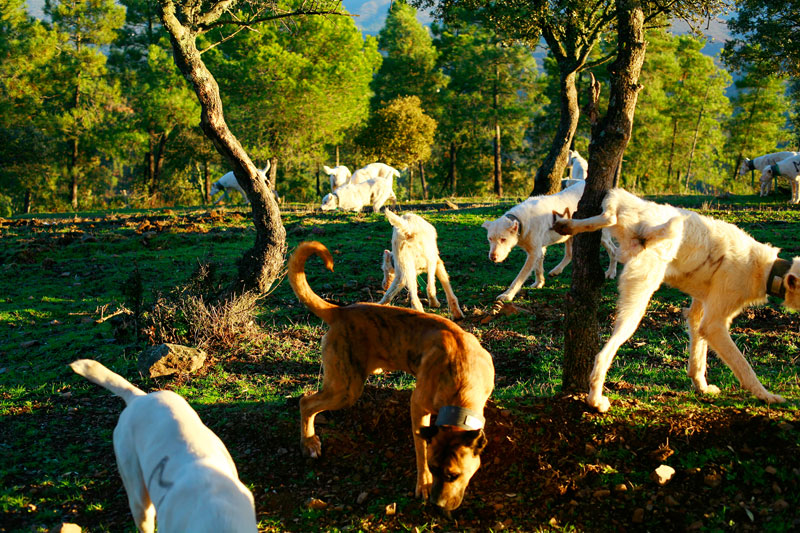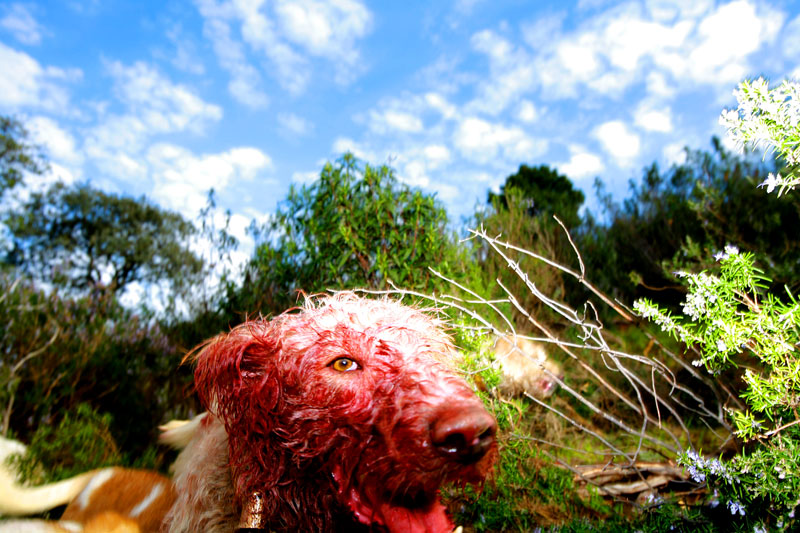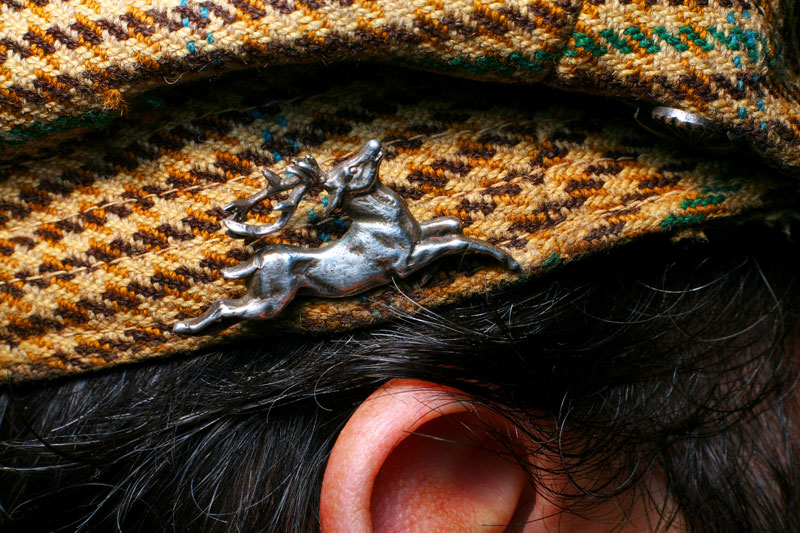Ricardo Cases, La caza del lobo congelado
The Frozen Wolf Hunt
Not long ago, the owner of a hunting reserve in the north hunted a wolf. During the good days the animal would have been stuffed or perhaps thrown directly into the rubbish bin. Now, this rare and illegally killed thing has ended its days in a deep freezer. ‘If important people come to hunt, we take it out of the freezer the day before and tell them: Look what we killed yesterday. It’s what they want to see’.
As Spain’s urbanization continues to expand nature is becoming more and more confined. Cities are work and economic centres and their populations continue to grow. Staying in the country means it can never belong to you: one has to move to the city in order to conquer the country.
But once one has arrived in the city the outlook changes. One has work, money and a sense of well-being but one begins to miss something. The conquest of the country turns into the conquest of a romantic ideal. The countryside that the city desires is not a wild place, not even an agricultural one. It is a theme park representing the country and somewhere to go to consume the ‘real thing’. Rural hotels try hard to be even more typically rural, the cheeses truly handmade, made-up names are given to things and places, and the city dwellers seem to remember the lives or generations that have gone before.
The fight with nature is one of the things that turns a man into a man. Years may pass without the urbanite ever seeing the animals he eats, only the thighs and fillets, actually killing an animal for food is almost a traumatic contact with reality yet exciting. It is life. To be able to say: I killed it.
Of course, that is the other reason why theme parks exist. A hunting reserve is not a place where there are still deer left: it is a fenced private property where deer are bred and fed during the entire year. When the hunting season begins the urbanite comes from the city in his four-wheel-drive with leather seats in search of his experience. He is taken in by the blood and the brute atmosphere that surrounds the hunt and it gives him back that which he lost: being a town dweller. With the shotgun in his hand, the Spanish town dweller who conquered the city remembers he is still a man, able to survive.
Later he has a photo taken with the frozen wolf and he climbs back into his four-wheel-drive without fully feeling what he had set out to encounter.
His face is alight with envy of the dogs who, drunk with blood, still know how to have fun like crazy.
Luis Lopez Navarro, 2007
Ricardo Cases’ works exhibited here are part of the group exhibition No Man Nature





